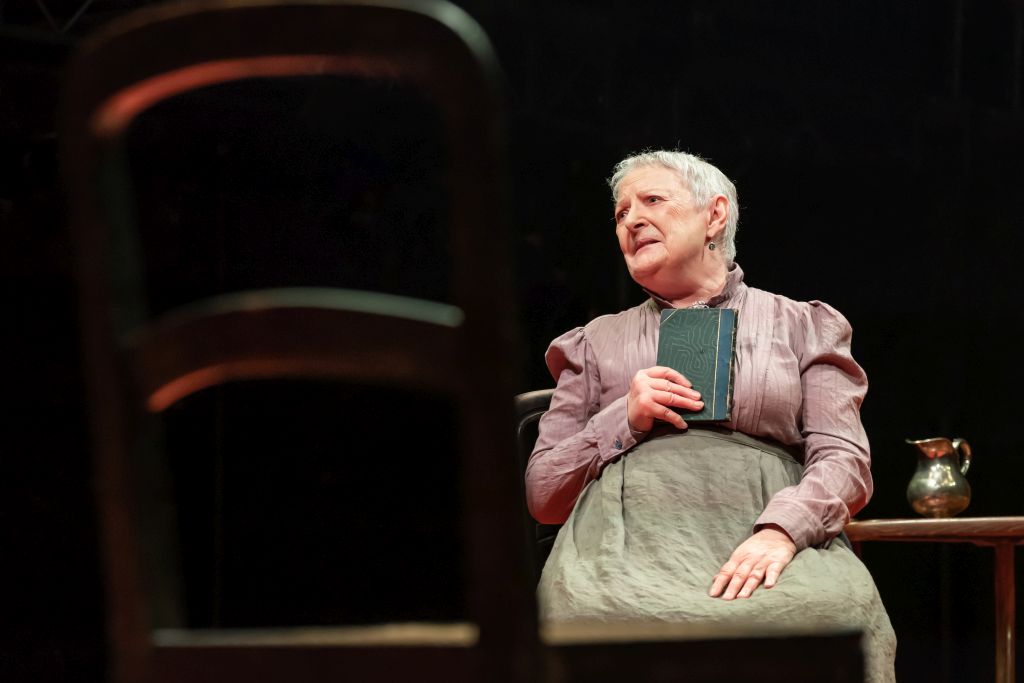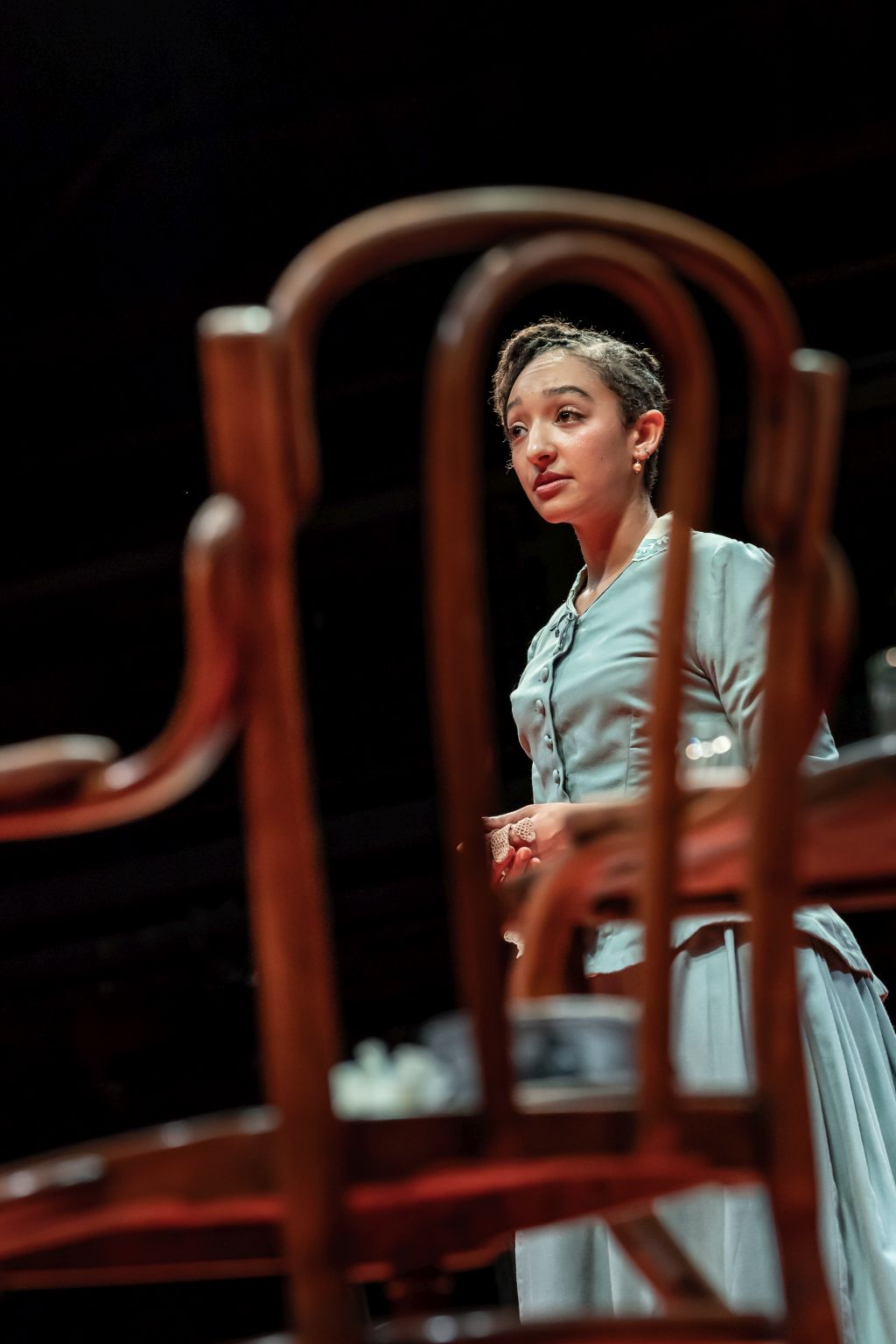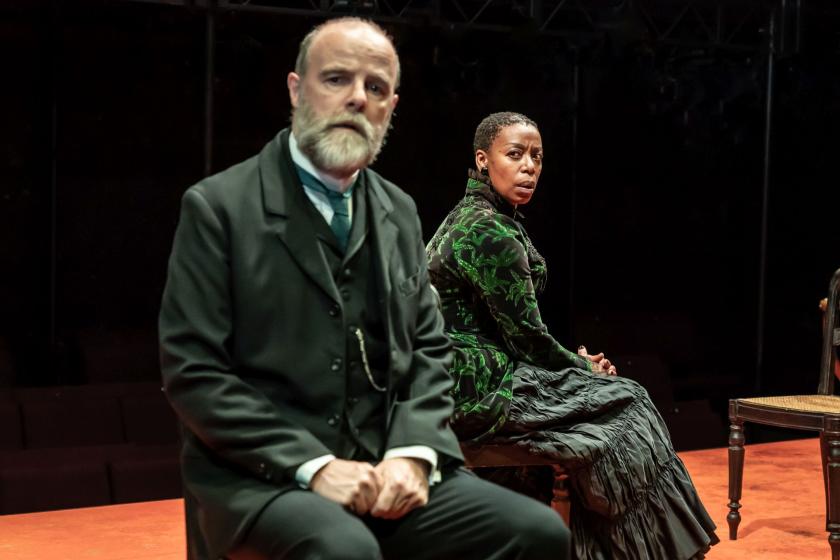Slamming the door on experience comes with repercussions in A Doll's House, Part 2, the thrilling Broadway entry from American writer Lucas Hnath that has arrived at the Donmar as part of an America-friendly season at that address including Marys Seacole (already finished) and The Band's Visit (still to come).
In each case, the Covent Garden venue has chosen to take a fresh look at the source rather than bringing over a pre-existing version, which in this case allows for the director James Macdonald to effect his customary wizardry. This veteran of new writing is well-matched to Hnath's intricately layered text in a staging that also moves the wondrous Noma Dumezweni on from the (Olivier Award-winning) world of Harry Potter and asserts her credentials afresh as one of the most vital, smartest actresses we have.  Others have examined the aftermath of Nora Helmer's celebrated exit in Ibsen's 1879 play that removes her from the belittling world of her husband Torvald and, more tragically, from their three small children: a 1982 musical, A Doll's Life, did a quick fade on Broadway. Far more successful was contemporary scribe Hnath's audacious 2017 New York entry that brought Laurie Metcalf the first of two Tony Awards in a row and suggested that not every sequel necessarily marks a diminution.
Others have examined the aftermath of Nora Helmer's celebrated exit in Ibsen's 1879 play that removes her from the belittling world of her husband Torvald and, more tragically, from their three small children: a 1982 musical, A Doll's Life, did a quick fade on Broadway. Far more successful was contemporary scribe Hnath's audacious 2017 New York entry that brought Laurie Metcalf the first of two Tony Awards in a row and suggested that not every sequel necessarily marks a diminution.
As it happens, the interplay across the four characters who are here reunited lends itself to the first-ever in-the-round configuration of the Donmar in my experience, on a largely bare Rae Smith set whose clinical, quasi-gladiatorial feel puts one in mind of another four-character play, Cock, first staged by none other than Macdonald. Nora (here played by Dumezweni), it seems, has gone off to become a best-selling author on women's issues writing under a pseudonym but existing under the ongoing heel of the husband she long ago dismissed.
Torvald (Brian F O'Byrne, cutting a more forlorn figure than Tony nominee Chris Cooper did in New York) responded back in the day to her departure by refusing to file for divorce, which Nora needs done in order to avert the predatory ways of an (unseen) judge keen to lay her low: the moral maze of Hnath's plot is itself distinctly Ibsenesque, and one imagines Judge Brack hovering at the periphery if this follow-on were somehow itself to have a third chapter.
The five scenes (no interval) are each named for a specific character (or two), and Hnath adroitly effects a neat sequence of face-offs that allows each cast member their turn as principal combatant. The most comic of the lot, at least at first, is the longstanding family employee, Anne-Marie, a de facto mother to Nora (not to mention to the children she abandoned) whom the great June Watson (pictured above) plays with a sweary glee that hardens as required by the swerves of the script. (Watson makes something classic of Anne-Marie's assessment of Torvald's suitability for a pet dog.)
 Enter Torvald, an adroit rhetorician whose verbal facility falls away to reveal a quivering emotional wreck who wishes that, in fact, it had been he who left Nora and not the other way round. The quartet is completed by the couple's now-grown daughter Emmy (Patricia Allison, pictured right, in a highly accomplished turn) who informs Nora that she has in fact been reported in the intervening 15 years as having died. Emmy, for her part, devises a solution all her own, which makes her the cunning equal of the mother whom she barely knows.
Enter Torvald, an adroit rhetorician whose verbal facility falls away to reveal a quivering emotional wreck who wishes that, in fact, it had been he who left Nora and not the other way round. The quartet is completed by the couple's now-grown daughter Emmy (Patricia Allison, pictured right, in a highly accomplished turn) who informs Nora that she has in fact been reported in the intervening 15 years as having died. Emmy, for her part, devises a solution all her own, which makes her the cunning equal of the mother whom she barely knows.
You could argue that the climax doesn't quite deliver the anticipated pay-off and that the narrative contortions carry on a beat too far. But there's no denying the intensity of the final confrontation between husband and wife that suggests a real affinity between these adversaries, and Dumezweni, eyes brimming with emotion and fingers tapping out a response all their own, throughout suggests a luxuriantly dressed, richly spoken woman whose spirit simply will not be caged. "Some stand out in my mind, and some sort of just fade," she tells Torvald of the lovers she has had. This performance is a standout that is likely to register, and resonate, for some considerable while to come.















Add comment